News + Media
 |
précisMay 1, 2016ActivitiesPosen receives lifetime achievement award; The International Policy Lab (IPL) concluded its first institute wide Call for Proposals this past January; The MIT-Imperial College London Seed Fund awarded $60,565 to three MIT faculty pursuing joint projects with peers at Imperial College London; The Center is pleased to announce the 23 recipients of its summer study grants; Griselda Gomez and Joli Divon Saraf each received a SHASS Infinite Mile Award. |
 |
Analysis + OpinionApril 26, 2016US Navy ships shouldn't be floating billboards for democratsHarvey M. SapolskyThe National InterestThe secretaries of the armed services have been losing power ever since the enactment of the National Security Act of 1947. The service secretaries are no longer members of the president’s cabinet and rarely perform more than ceremonial duties. |
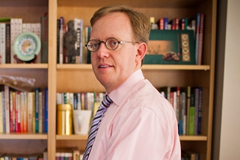 |
News@E40April 19, 2016Fravel Receives Carnegie FellowshipMIT political scientist Taylor Fravel has been named to the Andrew Carnegie Fellows Program for the 2016-17 academic year, a prestigious award he will use to extend his studies of Asia's ongoing maritime disputes. The award, announced April 19, 2016, by the Carnegie Corporation of New York, supports “research and writing aimed at addressing some of the world’s most urgent challenges to U.S. democracy and international order,” and focuses on scholars in the social sciences and humanities. Read more |
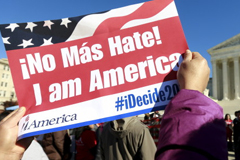 |
Analysis + OpinionApril 19, 2016SCOTUS and immigration: the politics behind the caseJohn TirmanHuffington PostThe oral arguments before the US Supreme Court on President Obama’s executive order on immigration were made Monday, and afterwards most observers agreed it’s not clear how the Court will decide the case. |
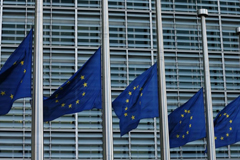 |
Analysis + OpinionMarch 22, 2016Has ISIS declared war on Europe?Jim WalshWBUR: Here & NowThe Islamic State group has claimed responsibility for the terrorist attacks in Brussels today. Here & Now's security analyst Jim Walsh discusses the attacks with host Robin Young. |
 |
In the NewsMarch 22, 2016Brazil's crisis momentMIT NewsBrazil has been much touted in the 21st century as a fast-rising “BRIC” country (Brazil, Russia, India, China) spurring global growth. But a sprawling political corruption scandal and economic turmoil have cast shadows on this once-sunny landscape. President Dilma Rousseff faces impeachment hearings over potentially misappropriating bank funds for the state, and former president Luiz Inácio Lula da Silva is implicated in a corruption case. Ben Ross Schneider, the Ford International Professor of Political Science and director of the MIT-Brazil Program, has been studying Brazil for decades and is the editor of a new volume on the country: “New Order and Progress: Development and Democracy in Brazil,” published this month by Oxford University Press. (The book stems in part from connections forged through the MIT-Brazil Program.) Schneider talked with MIT News about the progress and setbacks Brazil is experiencing. |
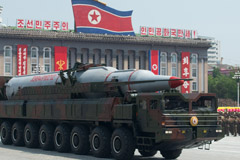 |
Analysis + OpinionMarch 10, 2016To stop the missiles, stop North Korea, Inc.Jim Walsh and John ParkThe New York TimesAmerican diplomats should be proud of the new sanctions on North Korea that the United Nations Security Council passed last week. In response to a nuclear test in January and missile launch in February, the Council, at the United States’ urging, agreed to a ban on North Korean imports of jet fuel and to mandate inspections of all cargo coming into or out of North Korea. |
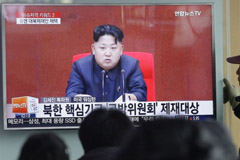 |
Analysis + OpinionMarch 4, 2016North Korea ramps up nuclear readinessJim WalshWBUR: Here & NowNorth Korean leader Kim Jong-un says his country's nuclear weapons should be ready for use "at any time." Here & Now's Peter O'Dowd asks security analyst Jim Walsh about that and what this new declaration from Kim really signifies. |
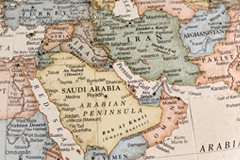 |
News ReleaseFebruary 29, 2016Bustani Middle East Seminar turns 30The Emile Bustani Middle East Seminar at MIT is celebrating its 30th anniversary this academic year. This spring semester it will host two lectures on contemporary Middle East affairs. |
 |
In the NewsFebruary 23, 2016It's all in our headsMIT NewsPolitical science PhD student Marika Landau-Wells is using psychology and neuroscience to better understand political behavior. A typical political scientist is not likely to develop a research plan that employs data from national archives, survey experiments, public health data, and an fMRI study in a single dissertation. But then, Marika Landau-Wells is not your typical political scientist. |



